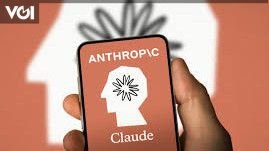JAKARTA A federal judge in California ruled on Thursday 17 July that three authors who sued Anthropic artificial intelligence startup (AI) for alleged copyright infringement could represent writers across the United States (US). The lawsuit relates to claims that Anthropic used their books without permission to train his AI system.
US District Judge William Alsup stated that writers can apply for class action representing all US writers whose works are allegedly downloaded by Anthropic from LibGen and PiLiMi’s “pirate libraries” in 2021 2022. These sites are said to be the sources of millions of books to train Anthropic’s chatbots.
Alsup said Anthropic may have illegally downloaded up to 7 million books from pirated sites. If this lawsuit is won, the company could be fined billions of dollars.
Anthropic’s representative has not yet responded to this decision. Meanwhile, the authors’ lawyers also declined to comment.
Three Authors Sue Anthropic
Andrea Bartz, Charles Graeber, and Kirk Wallace Johnson sued Anthropic last year. They accuse these Amazon and Alphabet-backed startups of using their books without permission or compensation to train Claude in order to respond to user orders.
The case is one of a series of major lawsuits by writers, media and copyright holders against AI companies such as OpenAI, Microsoft, and Meta Platforms.
The AI company argued that their system carried out a “fair use” of copyrighted material to create transformative new content. However, in June, Judge Alsup stated that although Anthropic’s AI training included fair use, the company still violated authors’ rights by storing pirated copies of their books in “the central library of all books in the world” which is not necessarily used for AI training.
Anthropic had argued that identifying all the books that qualify for copyright and the authors was impractical. However, Alsup rejected this argument and allowed a class lawsuit to represent all the authors whose books were allegedly downloaded from LibGen and PiLiMi.
This case will be in the spotlight in legal debates surrounding copyright and development of AI technology.
The English, Chinese, Japanese, Arabic, and French versions are automatically generated by the AI. So there may still be inaccuracies in translating, please always see Indonesian as our main language.
(system supported by DigitalSiber.id)


